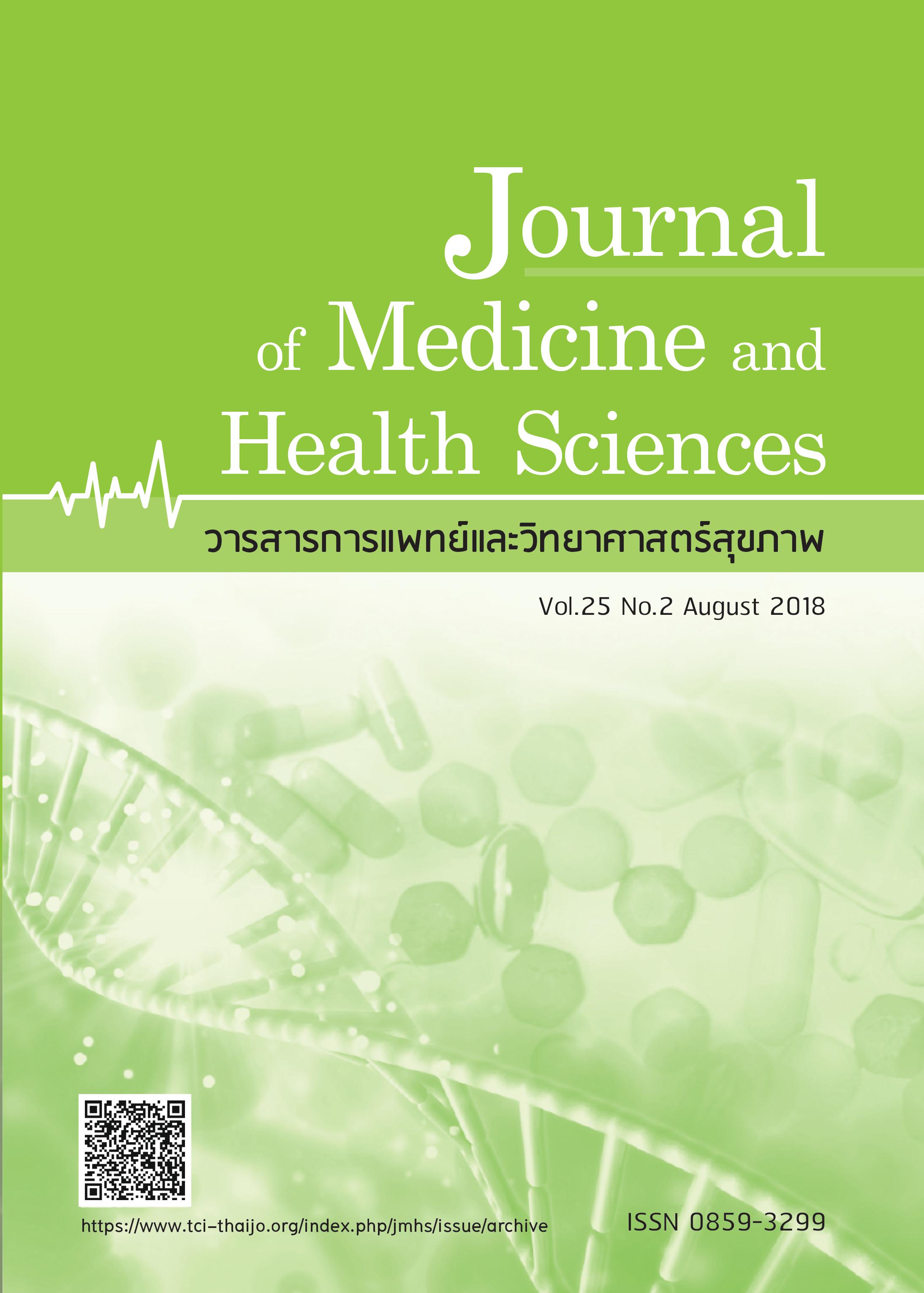Social and intelligent aspects to predict the health care behavior among patients at risk of ischemic stroke
Keywords:
ischemic stroke, health care behavior, health quotientAbstract
Ischemic stroke is a chronic disease causing loss of both hospital treatment and
long term care. The patients with this disease may decrease in their level of self-care which
have impact on physical, mental, social and economic. However, this disease and its risk
factors are preventable, if at-risk patients exhibit good health care behaviors. Therefore,
the objective of this study was to analyze the power of social and intelligent aspects in the
prediction of health care behavior among all patients at risk of ischemic stroke and patient
with different biosocial factors. The population consisted of patients who were registered in
a non-communicable disease clinic, including diabetes mellitus, hypertension, myocardial
infarction and dyslipidemia at Ongkharak Hospital in Nakhon Nayok province. The samples consisted of 370 patients selected by proportional stratified random sampling. The dependent and independent variables were collected using a self-assessment questionnaire with a 6 point rating scale. The reliability of the alpha coefficients were between 0.76 and 0.87. The utilized statistics included percentage, mean, standard deviation, t-test, ANOVA and hierarchical multiple regression analysis. The results found that all of samples and all variables used in the model of the study, including social support, social activities, perceived social norms, health quotient, emotional quotient and spiritual quotient, could predict the health care behaviors of patients at risk of an ischemic stroke at 62%. When stratified and analyzed by each of the biosocial factors, social activities and health quotient was the highest predictive (81%) of health care behavior in the male patients group. Moreover, the health quotient variable was the most frequent and significant variable remains in the model to predict health care behavior in each biosocial sample group. In conclusion, social and psychological factors influenced the predictive qualities of health care behavior. Thus, health care providers should empower these factors among non-communicable disease patients at risk of ischemic strokes in routine health promotion practices.



